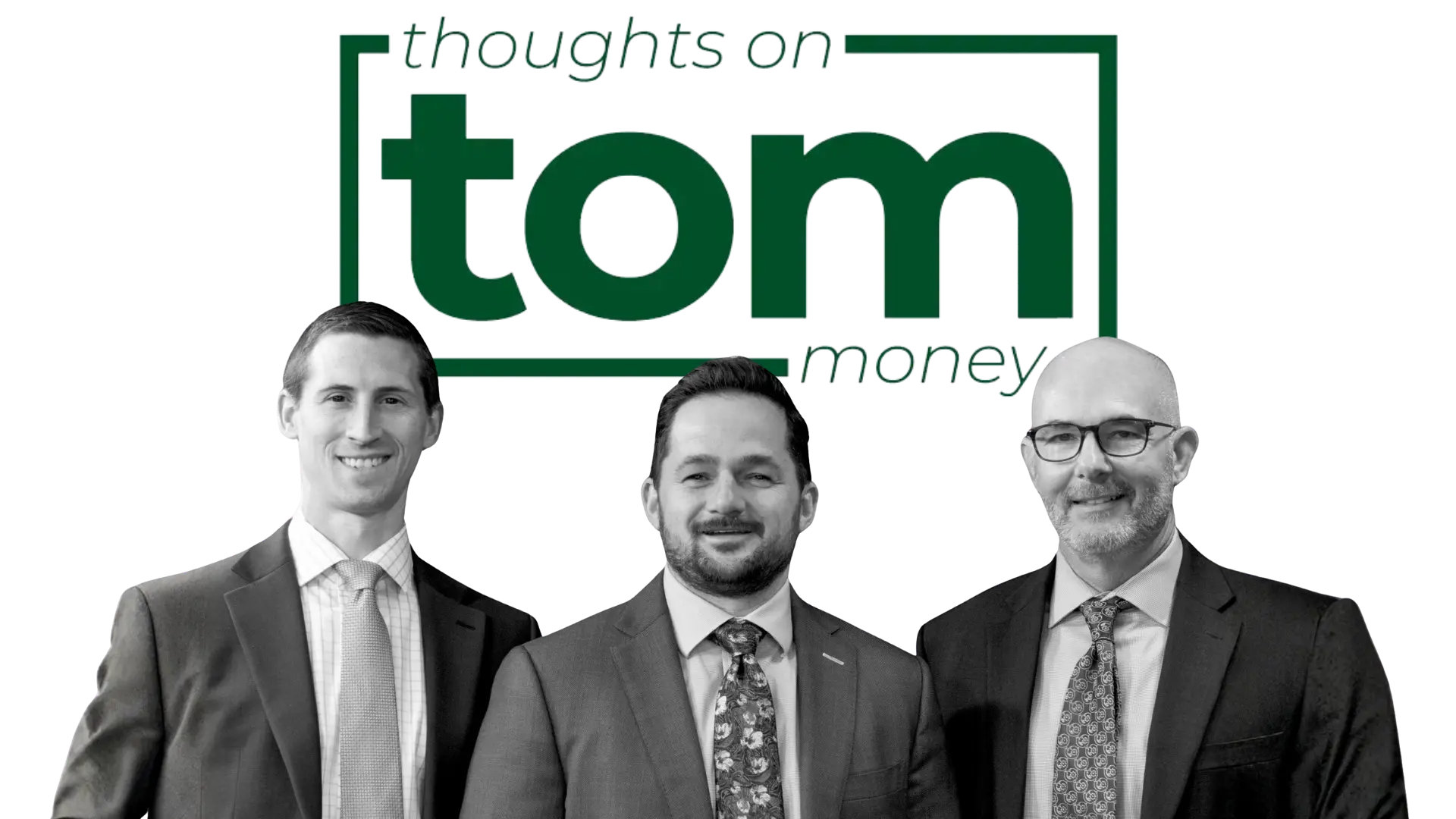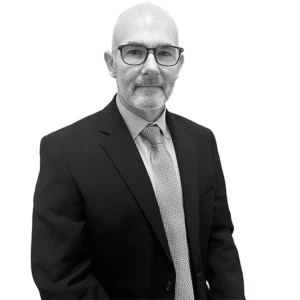In our household, when things start to get a little tense, my wife and I have a funny way of breaking the ice. Right in the middle of a disagreement, she’ll suddenly point to her teeth. This is her silent signal that I might have something stuck in mine.
There’s nothing quite like being humbled by the possibility of a rogue piece of cilantro clinging to your teeth – especially after you’ve just told someone how wrong they are, and how right you are.
Sometimes, the cilantro is real. Sometimes, my wife is just injecting a little humor into an otherwise tense moment. But either way, the only way I’ll know if she’s telling the truth is if I look in the mirror.
Challenging Our Views
Last week, four members of our Investment Committee spent five days meeting with 33 different portfolio managers and investment professionals in New York City. This has become an annual tradition for our firm – to meet with some of the best and brightest minds on Wall Street. As David Bahnsen said in his Dividend Café article on October 3rd, “Each year, the trip turned into an opportunity not only for due diligence on managers but also for internal scrutiny over our own decisions and positioning.”
This has become incredibly crucial to our team’s process because it forces our team to ask the hard questions, both to ourselves and to others…
· “What am I missing?”
· “Why do I own this?”
· “Why do you own this?”
· “What if I’m wrong?”
As David stated in the aforementioned Dividend Café article, “I can’t even begin to tell you how wide the chasm is between the “AI is the biggest revolution of all time and all any investor needs to do is close their eyes and buy buy buy” camp – and then the “AI is going to set more money on fire than anything we have seen MySpace, Peloton, AOL, and Pets.com rolled into one.”
Diversity of opinions is good and allows one to assess from multiple vantage points.
I Am Biased… Are You?
Why do we need to challenge our own views, whether it be our investment philosophy or our political lens? Because we are all biased. You, me, and everyone else. And it’s nearly impossible to counteract our biases if we don’t understand them in the first place. Awareness is key.
Let’s walk through a couple of the common biases…
Confirmation Bias
I’m a diehard Minnesota Vikings fan, which has become almost synonymous with false hope. Every preseason, you’ll find me diving into articles hyping up the new roster additions, convinced that this is finally our year. The players who left? Clearly overrated. The ones who joined? Game-changers. Any article that has a pessimistic outlook on the team is quickly deleted.
Harmless? In this case, yes. But if you approach your investments the same way, this confirmation bias can lead you to an echo chamber that simply reinforces your (potentially wrong) beliefs.
Recency Bias
October takes me back to my time living in Seattle, where the fall colors are simply spectacular. But October in Seattle means you might wake up to 70 degrees and sunshine, or find yourself caught in a sudden downpour.
After a few sunny October days in a row, I’d start to assume the sunshine was here to stay. No need for a rain jacket, right? Seattle would humble me quite quickly.
It didn’t take long to learn a valuable lesson… just because something has been true for a few days, weeks, or even years, doesn’t mean it will continue. Trends can often be misleading. Last week, Trevor wrote an article titled Abnormal Returns. Investors tend to look at the recent past and ascribe a similar rate of return to the future. Because of this, statistics show that most investors enter the market after they have done well and exit after they have done poorly. This is a sure way to buy high and sell low (see the figures below).
 Source: Dalbar, Inc – October 6, 2025
Source: Dalbar, Inc – October 6, 2025
Just because something has done well in the past does not mean it will continue to do well in the future. Trees can’t grow to the sky.
Why We Don’t Look in the Mirror
If challenging our views and counteracting our biases are so important, why don’t we look in the mirror?
Because it’s hard. It takes work.
This is why we talk about “game film” a lot at The Bahnsen Group. Professional athletes spend as much time watching film as they do practicing on the field. Likewise, investors should review their game film… how did you behave during the COVID drawdown in 2020? What actions did you take (or think about taking) while stocks and bonds were down in 2022? Knowing our tendencies helps us understand what we might be prone to in the future.
Ask yourself why you own something. If your answer is “because it’s gone up in the past”, that’s not sufficient. If it’s “because someone else will be willing to pay more for it” that’s called the Greater Fool Theory (kids at recess know this as a game of hot potato).
Vacation, Don’t Move
When you hold strong convictions, it’s essential to invite diverse viewpoints and ask challenging questions. However, it doesn’t mean you need to interrogate yourself or abandon your beliefs entirely.
A mentor once told me, “It’s okay to vacation in doubt… just don’t pack your bags and move there.” That advice has stuck with me. Questioning your perspective is healthy, but it doesn’t require a full retreat from your core principles.
For example, early in my career, I was firmly convinced that, for most clients, delaying Social Security as long as possible was the optimal strategy. From a textbook standpoint, the math supported it. I held that view until other advisors and clients helped me see that the decision is far more nuanced than simply “wait as long as you can.”
The Social Security conversation deserves its own article, but the takeaway is this:
1. I had a strong conviction.
2. That conviction was challenged by advisors and clients, and holes were poked in my methodology.
3. I still hold a similar conviction as in my early days, but now I approach each case with a broader perspective, allowing for more personalized, thoughtful advice.
Check Your Teeth!
Even if it’s difficult, we need to ask ourselves the hard questions and challenge our thinking. If I’m trying to lose weight, I might not want to step on the scale. But it doesn’t change the fact that I should step on the scale to see how I’m progressing with my weight loss goal.
Question your assumptions. Ask yourself, ask others.
And most importantly, check if you have cilantro in your teeth.
Blaine Carver
Private Wealth Advisor
Trevor Cummings
PWA Group Director, Partner






